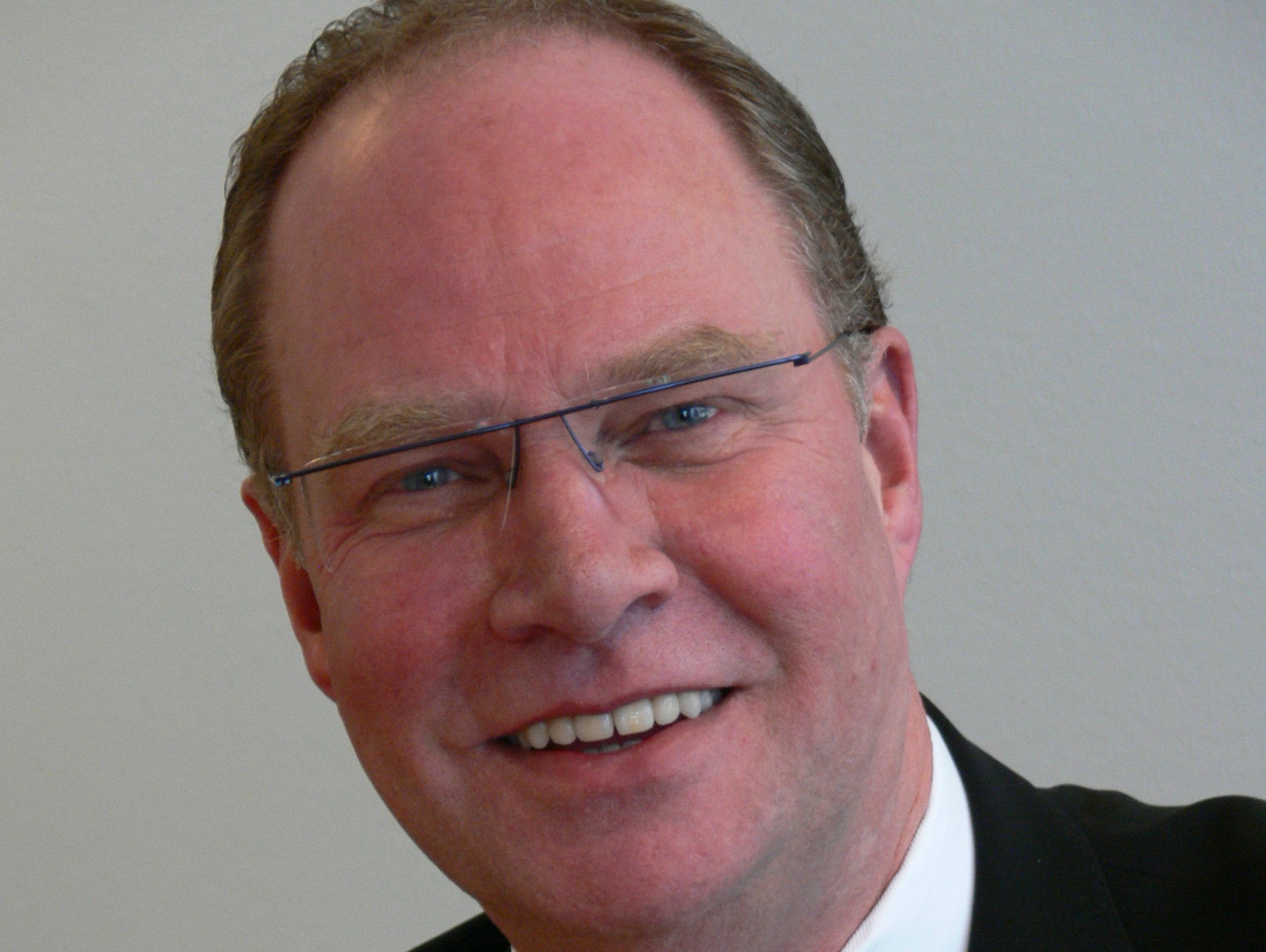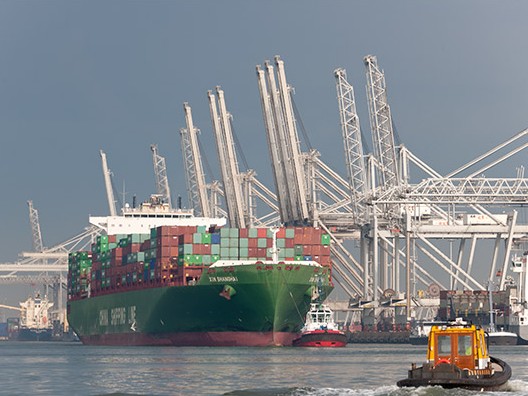
Nekovri is the leading organisation in The Netherlands in the area of temperature-controlled logistics. “As a self-respecting industry association, Nekovri must be bold enough to look beyond the horizon,” states the organisation’s website. What will it find there? Here Aloys Putmans, general secretary of Nekovri, explains about the industry developments, trends and expectations for the future.
Nekovri’s members are transporters of refrigerated and frozen products and cold storage companies who provide services to third parties. With 135 members, the association represents 95% of the sector. The board comprises 6 members. General secretary Aloys Putmans’ portfolio includes Energy commission, Safety, Communication, European developments and aspects related to The European Cold Storage and Logistics Association (ECSLA).
“Cold storage companies have emerged as a result of the growth in the volume market, especially for seasonal products. In the past ten to fifteen years, our product-related knowledge has increased enormously. We now know how to delay the growth of flower bulbs, for instance, until the precise moment that we want them to start to bloom. In another example, in the past if there were too many apples they were processed into apple sauce or apple juice, and if the quality of the fruit was too poor for that entire batches were wasted. Nowadays, thanks to cold storage, we’re able to keep apples for more than 12 months, and when they eventually leave the facility they’re just as fresh as when they were picked. In other words, whereas a cold storage facility used to merely be a matter of controlling the temperature, it’s now a place with a wealth of product knowledge; we understand the effects of factors such as air composition (oxygen and nitrogen ratio) and humidity, of light and dark as well as temperature – and all at a product-specific level, because apples require different conditions than bananas, tomatoes, meat or fish. The freezing speed also has an impact on the product – on its texture, flavour and colour. For example, freezing meat too rapidly destroys the cells and that’s a bad thing. We know how to freeze meat in a controlled manner so that it retains its quality. Taking care of product quality is a top priority.
“Another important trend is that Nekovri’s members have increasingly evolved into logistics partners for producers, importers, wholesalers and retailers,” continues Aloys. “We do more than merely store products. For a food producer in Rotterdam, for example, we also handle the contacts abroad, customs requirements, contact with the Netherlands Food and Consumer Product Safety Authority (NVWA) and transport to customers.”
“We’re only a small country, but thanks to the port in Rotterdam and Schiphol airport in Amsterdam, the growth in so-called ‘value-added’ activities on behalf of clients, and the fact that we strive to keep costs down wherever possible, The Netherlands is the number 1 in Europe in temperature-controlled logistics. Traditionally, for example, bananas were always shipped to Antwerp because they also had a return freight flow from there – sometimes, the reason can be as simple as that. Last year the import of bananas moved from Antwerp to Vlissingen, not only because we too can offer return freight flows but also because an ultramodern cold storage facility has been built there. It features complete cells fitted with air-conditioned refrigerated and freezing chambers offering optimum air and lighting conditions. That enables us to control the ripening process.
Refrigerating and freezing is a specialised area. Needless to say, when companies are considering setting up their own cold storage facility we hope that they also calculate what they could save by outsourcing those activities instead. By reducing costs through economies of scale, we can offer more attractive rates to clients. Moreover, by sharing our knowledge and adding value we boost the customer’s profit.
In a cold storage facility for French fries, for example, new technology is being used to remove as much oxygen from the building as possible to eliminate the fire risk. After all, fire needs oxygen to burn. That has substantially reduced the cost of fire insurance. Other projects include joint buying of forklift trucks and also of energy, for which Nekovri collaborates with Powerhouse. Research has demonstrated that cold storage facilities can source cheaper electricity by making use of this opportunity, with the potential savings reaching over 30%. Most of Nekovri’s members have already purchased their energy for the next few years and are now looking at buying for 2019.”
“Dutch cold storage facilities have been involved in the Multi-year Agreements on Energy Efficiency (MJA) covenant in collaboration with the Netherlands Enterprise Agency (RVO) since the very first phase. Following on from MJA1 and MJA2, the MJA3 covenant currently applies. The participating companies from the refrigeration and freezing industry contribute to greater energy efficiency within the sector.”
“In the context of sustainability we launched a campaign called Het is een koud kunstje (‘Sustainability made easy’) in autumn 2014. The campaign is aimed at making companies and employees aware of old habits which waste energy. If we can appeal to people on the shop floor in a positive manner, that will not only be good for the environment but can also boost company profits by a couple of percent. The time is ripe to drive home the importance of the improvement processes, to make the workforce realise that they too can help to reduce costs by a couple of percent by working more sustainably – such as by switching off lights, closing doors, separating rubbish for recycling and being careful not to waste resources and materials.”
*Regulation (EU) No. 517/2014 on fluorinated greenhouse gases was published in the official document on 20 May 2014 and replaced Regulation (EC) No. 842/2006 on 1 January 2015.
“In our sector, the focus lies on the storage of agricultural and fishery products. Agricultural policy is largely dictated by Brussels; therefore, it’s important to comply with the European policy and to monitor it very closely. We are involved in the discussion at a high – almost political – level. By 2025 we must be completely F-gas-free. That’s no easy task because today at least 75% of all facilities in The Netherlands use F-gases. And if you maintain your systems well they can last for 25 to 30 years, so a great many of them will still be operational in 2025. We will support the Brussels policy as long as we’re given the opportunity for a phased transition and effective financing options.”
“F-gases are particularly harmful to the environment because of their huge carbon emissions. There’s a historical reason that so many facilities are based on this refrigerant. Ammonia, a natural refrigerant, is regarded as being carcinogenic. The risk can be fully controlled with careful handling, but just when the construction of cold storage facilities was at its peak the government was extremely sceptical about the use of ammonia. Hence, it was decided to use fluorinated gases, which are also much more energy-efficient. Replacing the system in a cold storage facility is not something you do lightly. If the air conditioning in your car works on F-gases, you can have it replaced in the space of a day. But if you turn off the cooling system in a cold storage facility which has been kept at -30 degrees Celsius for the past 30 years, the walls will crack and you will probably have to construct a whole new building. An additional problem is financing; banks are not prepared to invest in the conversion of a system to a less energy-efficient one. As the industry, we really need to think how we can devise a phased approach. There are some good alternatives such as natural refrigerants (ammonia) or a cascade system.”
“We expect that, a maximum of 10 years from now, 40 percent of the volume market will be in closed chains, with retail as the final stop. Dutch food retailer Albert Heijn chooses to work with regular suppliers. Although that generates smaller margins for those suppliers, they have guaranteed sales and no need to worry about customer acquisition. The retailer benefits from delivery reliability, there are clear agreements about product quality and the result is lower purchasing costs. We will have to respond to this changing market as a united industry.”
“Monitoring systems have become an indispensable part of our sector and they are increasingly advanced. You simply must be able to guarantee the quality of products, also in the context of tracking and tracing. That’s why we’re also investing in new developments and in research, including through collaboration with Wageningen University. Such activities are supported by various internal expert teams; our teams comprise members who are exploring food safety, health & safety, energy, etc.”

“And last but not least, I expect networking to become increasingly important. It’s the opposite of selling. Networking entails you giving things away, whereas selling is motivated by an underlying self-interest. In my opinion, those two aspects should be kept clearly separate. I’m convinced that true networking always pays off in the end. There’s a new generation at the helm which is open to sharing knowledge – open to giving it away. Ultimately it’s about the quality of the entire chain. That’s why we want to extend the existing teams of experts with suppliers: with entrepreneurs who are keen to share their ideas and contribute to the development of a future vision. There are so many areas of overlap, and there’s so much expertise. I fully believe that we should share that knowledge with one another. Our heads are simply not big enough to be able to do it all on our own.”
Source: Portretfoto: ©Annie van Schaik Fotografie, Haven: ©iStock/pidjoe